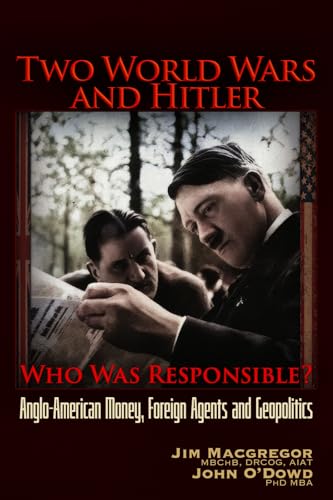
C.S. Lewis, Poetry, and the Great War 1914-1918
by John Bremer
Popularity
1.37 / 5
* A book's popularity is determined by how it compares to all other books on this website.
Where to buy?
Buy from Amazon* If you buy this book through the link above, we may receive a small commission at no extra cost to you.
C.S. Lewis, Poetry, and the Great War 1914-1918 by John Bremer
Details
War:
World War I
Perspective:
Researcher
Biography:
No
Region:
Europe
Page Count:
277
Published Date:
2012
ISBN13:
9780739171523
Description
Brief Summary
"C.S. Lewis, Poetry, and the Great War 1914-1918" by John Bremer delves into the formative years of C.S. Lewis, exploring his transition from a soldier-poet to an ambitious academic. This book focuses specifically on the period surrounding Lewis's early work, "Spirits in Bondage," and reassesses his motivations and actions during this pivotal time. Bremer portrays Lewis not as a romanticized poet shaped by war but as a shrewd individual navigating personal and professional landscapes to pursue his ambitions.
Main Themes and Topics
The book primarily examines the complex interplay between C.S. Lewis's experiences during the First World War and his subsequent literary endeavors. One of the main themes is the redefinition of Lewis's identity, moving away from the idea of him being solely a "soldier-poet." Bremer's analysis suggests that Lewis's wartime experiences and subsequent ambitions were more calculated and self-serving than previously perceived, offering a fresh perspective on his early life. The book also touches on themes of ambition and exploitation, as Lewis is depicted leveraging personal relationships and academic opportunities to forge his path.
Writing Style and Tone
John Bremer's writing style in "C.S. Lewis, Poetry, and the Great War 1914-1918" is analytical and precise, seeking to present a detailed portrait of a young C.S. Lewis. The tone is scholarly yet accessible, aiming to engage both academic audiences and general readers interested in literary history. Bremer methodically presents evidence and interpretations that challenge traditional views of Lewis, encouraging readers to reconsider preconceived notions about the famed author.
Criticism
Some readers might find Bremer's portrayal of C.S. Lewis controversial, as it challenges the more traditional and heroic narratives often associated with him. By presenting a less flattering view of Lewis's youthful ambitions and relationships, Bremer invites debate and discussion, potentially alienating those who hold a more idealized view of the author. However, this critical stance is also one of the book's strengths, offering a thought-provoking analysis that invites readers to explore different facets of Lewis's character.









